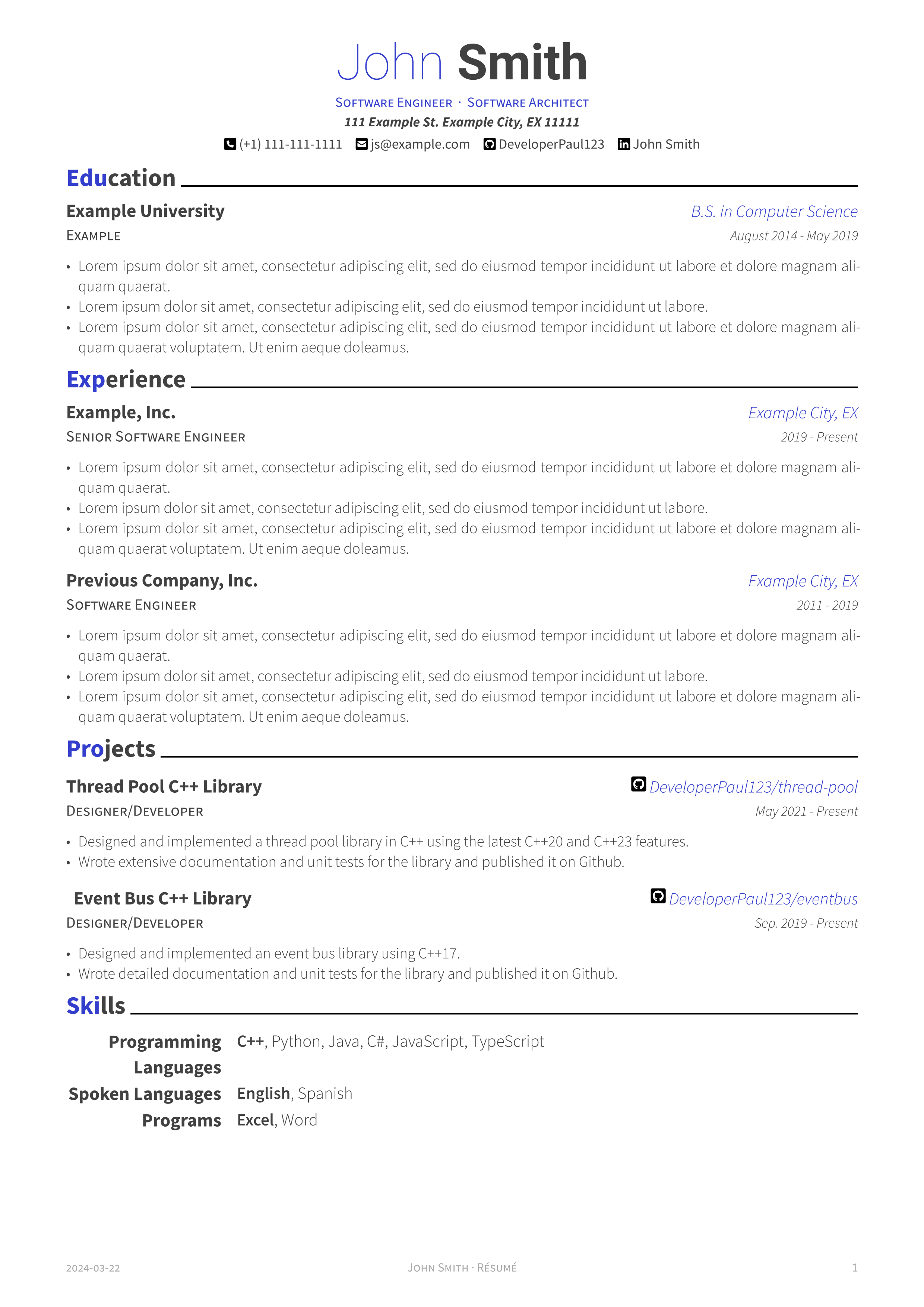this post was submitted on 27 Mar 2024
335 points (96.1% liked)
Open Source
42858 readers
220 users here now
All about open source! Feel free to ask questions, and share news, and interesting stuff!
Useful Links
- Open Source Initiative
- Free Software Foundation
- Electronic Frontier Foundation
- Software Freedom Conservancy
- It's FOSS
- Android FOSS Apps Megathread
Rules
- Posts must be relevant to the open source ideology
- No NSFW content
- No hate speech, bigotry, etc
Related Communities
- !libre_culture@lemmy.ml
- !libre_software@lemmy.ml
- !libre_hardware@lemmy.ml
- !linux@lemmy.ml
- !technology@lemmy.ml
Community icon from opensource.org, but we are not affiliated with them.
founded 6 years ago
MODERATORS
you are viewing a single comment's thread
view the rest of the comments
view the rest of the comments

@tarius
The skills section is the place you can list years of use of each tool or technology. The experience section is a place to list accomplishments, independently of what tools were used.
My recommendation is based on science consulting, where a pretty clear division can be made between tools and accomplishments.
I dont use a Skills section at all in my resume. How do you determine the quality of skills based on just keywords in the skills section?
In description if you show that you worked in certain technology for "this" long, you would get somewhat an idea of how skilled that person is in that tech
Lets say I put Office in skills section, you wouldnt know how skilled I am in office. I might have only worked with it for a month. And I am talking about resume without any fancy graphics with bar graph to show the skill level
@tarius
The same question would apply to skills mentioned in the experience section--unless the experience section is nothing but a description of use of those skills. It seems as if you and I may be valuing the experience section in different ways.
But the direct answer to your question is in an interview. If you assert both valuable skills and experience, then you will get pressed to demonstrate or explain those face-to-face.
That's why I said if the skill is listed as a description in the experience (not literally the keyword), the "time range" would give you somewhat of an idea about the person. Key here is not listing just the skill, but what they actually did with that skill.
If you are a recruiter/manager that gives a call to everyone, then I appreciate what you do. But, wouldn't your job be much easier if you are able to understand the candidate's skill from the description without even talking to them? Filtering out inexperienced people would be much easier instead of just going by the skills section.
In the current market for IT folks, its not easy to get an interview. So you wanna give as much information in the resume to get that first call. This is from my personal experience in the last 6-10 months
@tarius
I'm interested in both the candidate's skills and achievements. The list of skills is a quick and easy filter, but once past that, achievements deserve a lengthier explanation--and they may still reference skills.
Having hired for years in an IT-adjacent discipline, I like to see skills and achievements factored out, not unlike the way code or data structures should be factored.
A/B testing of resume structures might be interesting.
Wouldn't the application software filter out the keywords from the description?
@tarius
I don't know what application software you're referring to.
I meant like Workday, Greenhouse, ADP, etc.
@tarius
I'm not familiar with them. All of our resumes are screened by actual people.